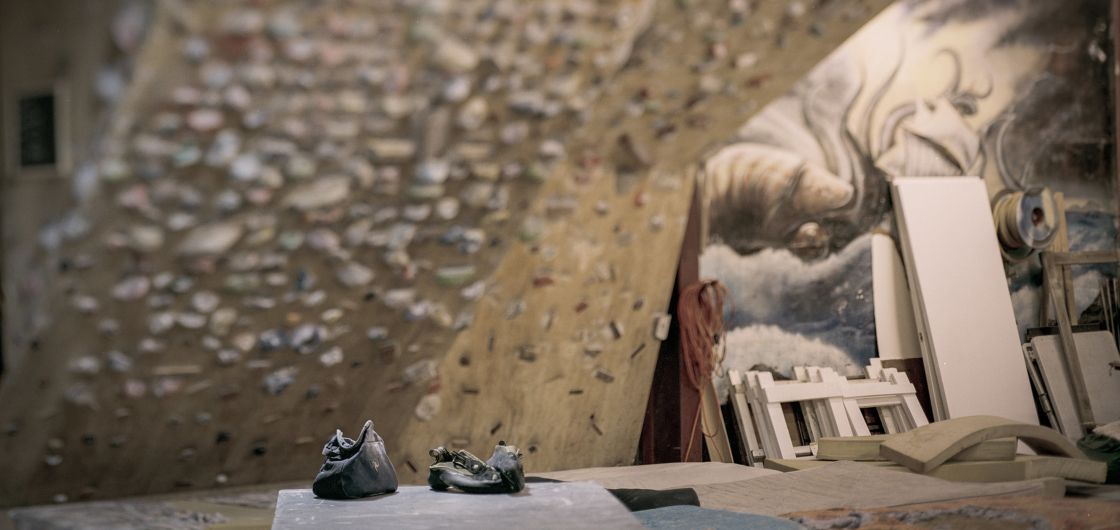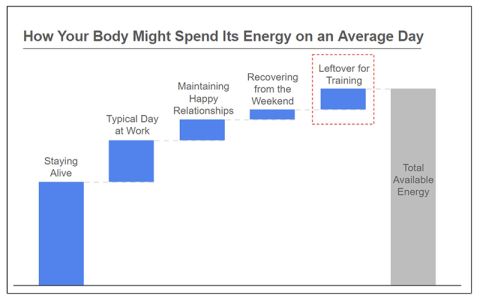
Training: Back To Basics
By Josh Cornah
If you want to train for rock climbing (or do train), this article is for you—and no, it's not a hangboarding protocol. Because at the end of the day, the protocol matters less than you think.
The point of this article is to either help you make progress with your training, or convince you to sack it off and head for the crag. I‘ve sacrificed many good climbing days in the gym trying to get stronger, only to train in a way that gets me nowhere. So if you’re gonna make the same sacrifice, make sure it's effective.

To train effectively, you must provide a stimulus, and convince your body to act on it. Providing a stimulus is easy, but convincing your body to act on it is more difficult and requires cultivating a supportive environment.
To do this you need to make sure you have enough energy set aside for your training.
So here are some basic things that might prevent you from improving, and some advice on how to mitigate them.
Stress
Stress can affect your body in many ways, and it has many negative health effects. You can’t expect your body to spend its energy on stronger fingers while you are stressed. So for more effective training, try to reduce stress in your life, and schedule your training for less stressful periods when possible. If you have a bad week, don’t try to push through it, take your time and look after yourself first.
Competing stimuli
You must prioritise the limited energy your body will give to building muscle or getting stronger. So pick one goal you want to make progress on, and focus on maintaining the rest. If you can’t directly relate what you are doing in your week to your goal, it either shouldn’t be there or shouldn’t be fatiguing.
Not eating enough, or being too light
If you are at a healthy body weight, eat as much as you comfortably can without putting on weight, and not just vegetables. If you want to cut weight, keep training but be careful of injury and be aware you will struggle to make gains. Make sure you get enough protein, 1.6g-2g per kg of bodyweight, and even more if you’re cutting weight. If you are at a low body fat percentage, you will need to be very careful of under-eating, and you are likely shooting yourself in your foot. It's better to be slightly heavier most of the time, and only cut weight for short periods and specific goals. If your body doesn’t have enough fuel, it's certainly not going to use it to make your biceps bigger.

Lack of rest
I think of rest as twofold: Firstly, your muscles recover, and secondly they grow. If you train again as soon as you recover, you ruin the second part. This is probably the most important point. If you are always fatigued, or just staying slightly ahead of it, you will not get stronger.
Of course, we don’t live in a perfect bubble. Go by feel and listen to your body—rather than trying to exercise control over it. These are guidelines, not rules, so don’t take them to the extreme. Once you get the basics right you can start caring more about the specifics of your training.
One more thing to consider, is noob gains. If you provide your body with a new stimulus you will almost always improve, even if you ignore a few of these points. However, you will not be improving at the rate you could. Unfortunately as our body gets accustomed to a stimulus it takes a bit more fine-tuning for it to continue to act on it.
So next time you are sitting tired, hungry or stressed at the hangboard, remember you could be stuffing your face with your friends at your best local climbing spot, and it would likely be better for your climbing.
